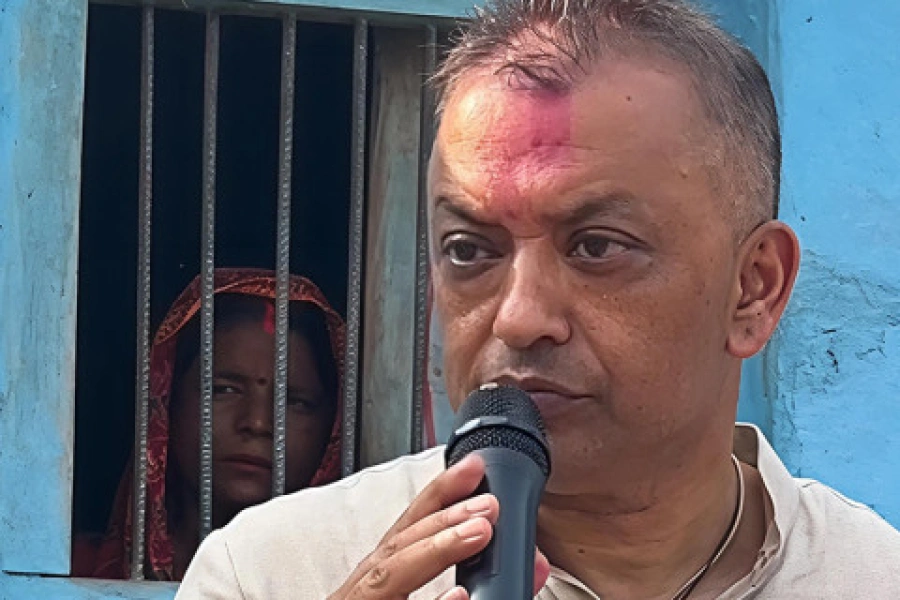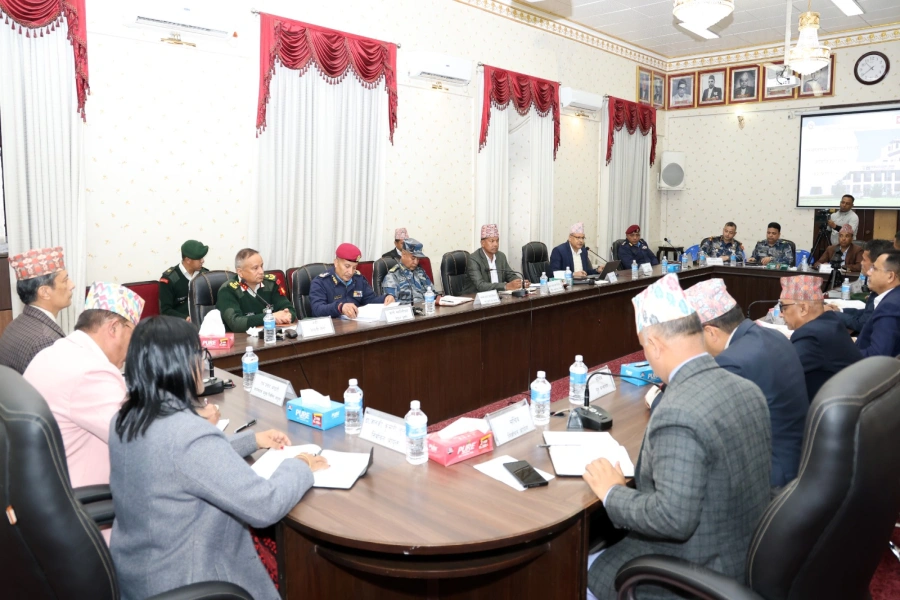KATHMANDU, March 27: India has refused to provide a grant of about Rs 17 billion as per the agreement reached between the two countries to build two petroleum pipelines and a fuel storage facility in Nepal. The state-owned Indian Oil Corporation (IOC) is reluctant to proceed with the project with grants as per the agreement reached with India during Prime Minister Pushpa Kamal Dahal’s official visit in May last year.
Despite several discussions between the officials of Nepal Oil Corporation (NOC) and IOC to implement the project, the project could not proceed after IOC hesitated to provide the grant. As per the agreement, the IOC should construct the Amlekhgunj-Chitwan Petroleum Pipeline, Siliguri-Jhapa Petroleum Pipeline and Greenfield Terminal at Charali in Jhapa with grants.
The construction cost of this project is estimated to be around Rs 17 billion. Similarly, there is a plan to build a Greenfield Terminal at Lothar in Chitwan with the investment of the NOC and the technical support from IOC.
During Prime Minister Pushpa Kamal Dahal's visit to India in May, the two governments signed a joint venture agreement to build two pipelines and one Greenfield Terminal (storage house) with grants from the IOC. The then Industry, Commerce and Supply Minister Ramesh Rijal and Indian Petroleum Minister Hardeep Singh Puri signed the agreement in the presence of Prime Minister Dahal and his Indian counterpart Narendra Modi.
Petroleum pipeline to be built with an investment of INR 17 bil...

The Indian side agreed to build the pipelines under a grant agreement after the then Secretary of the Ministry of Industry, Commerce and Supplies Madhu Marasini, Joint Secretary Radhika Aryal and the then Executive Director of the NOC Umesh Kumar Thani took the stand that the project cannot go ahead without the grant.
The IOC officials have now put forth a proposal that the NOC should pay for 10 to 25 years.
"According to the agreement, our position is that the IOC should provide grants to construct the pipelines," said a senior official of NOC, adding, “Now, the IOC is proposing that we decide the payment schedule over a specified number of “years, and they are suggesting a payment scheme based on the volume of liters supplied
It was agreed to take the project to the implementation stage within six months of the agreement. According to the NOC, despite four meetings with IOC officials on this matter, the matter of proceeding with the construction has not been finalized. The spokesperson of NOC, Manoj Thakur, said that the project could not go ahead because the matter of investment had not been finalized.
According to a joint study conducted by the IOC and the NOC in 2020, the construction of the Amlekhgunj-Chitwan petroleum pipeline will cost about Rs 4.38 billion, Siliguri-Jhapa petroleum pipeline will cost Rs 4.6 billion, and the Greenfield Terminal in Charali, Jhapa is expected to cost Rs 8.3 billion.
The pipeline project is planned to be built with the investment of IOC and the Greenfield Terminal of Lothar in Chitwan with the investment of the NOC.
The estimated cost of Rs 8.3 billion for the construction of the Greenfield Terminal in 2020 is now expected to increase to Rs 9.88 billion.
Although the issue of building a petroleum pipeline between Nepal and India has been raised for a decade and a half, the Motihari-Amlekhgunj pipeline was put into operation on September 10, 2019. The petroleum pipeline brought to Amlekhgunj is going to be extended to Chitwan. The country's capital, Kathmandu, and another major city, Pokhara, consume most of the petroleum products. Therefore, to reduce the transportation cost in these areas, it is planned to build a petroleum pipeline up to Lothar in Chitwan.
Construction of the pipeline helps to save the transportation cost, maintain the purity of the petroleum products coming to Nepal and control leakages. Bringing petroleum through pipelines not only makes it cheaper, but also prevents theft, leakage and adulteration. The problem of traffic jams during oil tanker movement will also be solved and environmental pollution will also be reduced.
Due to the advantages of importing petroleum products through pipelines, the NOC has shown interest in new pipeline projects.
The Siliguri-Jhapa Pipeline will cover the demand of Eastern Nepal and even Koshi Province. As the currently operational Motihari-Amlekhgunj petroleum pipeline cannot meet the demand of the country, the NOC is planning to construct this pipeline to meet the demand in eastern Nepal. After building the pipeline, fuel will become cheaper.





























-1200x560-1771928761.webp)









